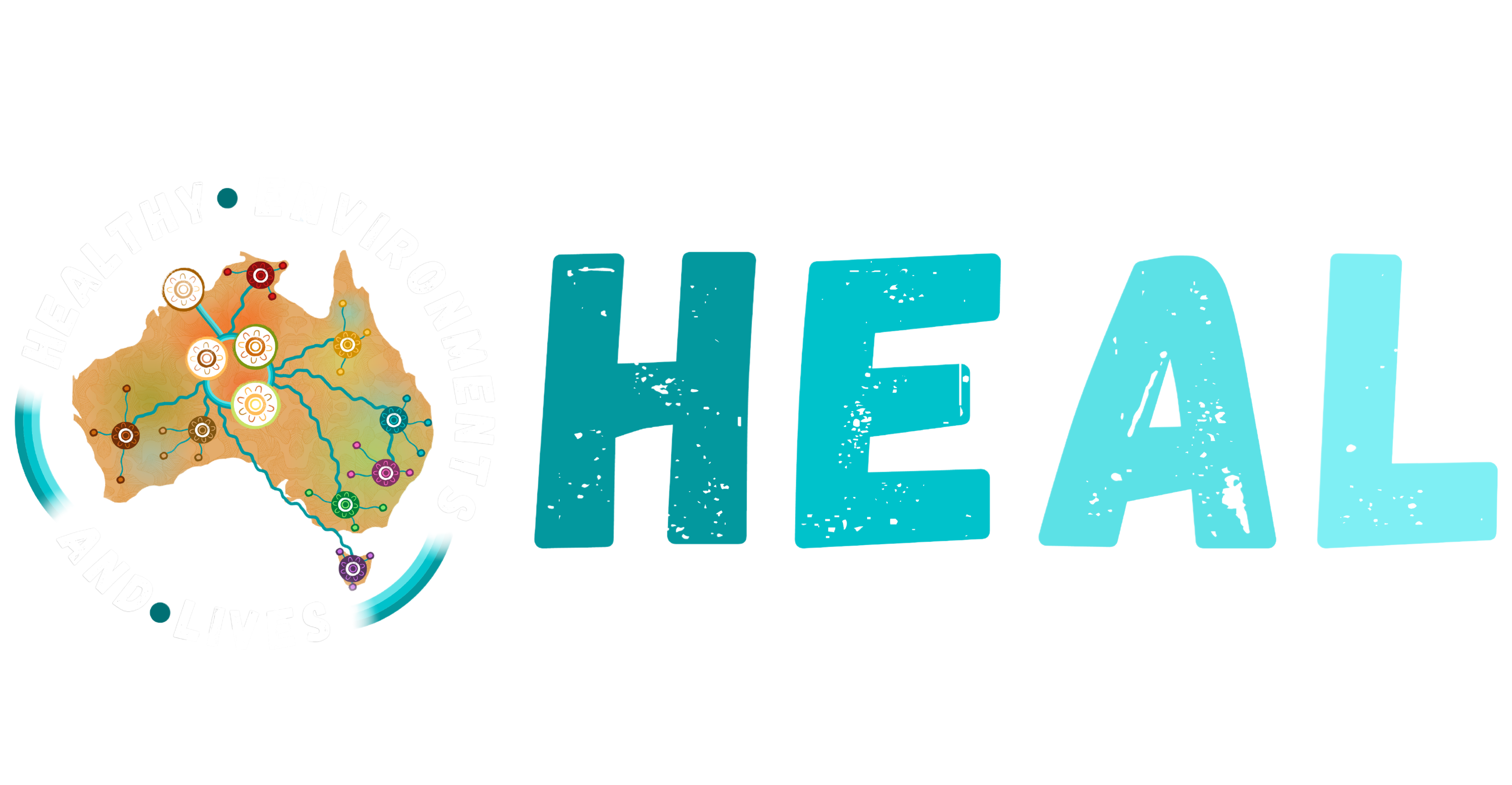Research
Themes
Indigenous Knowledge
Systems
Systems
Read more
Indigenous Knowledge Systems will embed systematic engagement of Indigenous people and organisations in environmental change preparedness, planning and co-design of mitigation and adaptation solutions. It integrates Indigenous knowledge structures that lie outside Western academic and intellectual paradigms into discourses, to shape research agendas within a framework that protects cultural and intellectual property.
Data & Decision
Support Systems
Support Systems
Read more
Data and Decision Support Systems will create a Findable, Accessible, Interoperable and Reusable (FAIR) database of health, population, climate and environmental datasets and analytic tools for assessment of past, current and future impacts of environmental change on health, vulnerability, equity and service delivery. It will generate durable, standardised and scalable protocols for sharing data between states, organisations and disciplines to inform responses at national, state, and local levels.
Science
Communication
Communication
Read more
Science Communication will improve understanding of climate change-related risk perceptions and barriers to attitudinal, behavioural and socio-economic change. It will optimise HEAL’s communication and outreach activities to enhance their impact.
Health Systems
Resilience & Sustainability
Resilience & Sustainability
Read more
Health System Resilience and Sustainability will:
1. Identify and assess components of health system vulnerability, resilience, and environmental sustainability in collaboration with health system stakeholders:
2. Develop systematic and scoping reviews; research, practice, and consumer resources (including case studies and examples); and service level interventions in health systems sustainability.
3. Support clinical, health workforce, health service and community Champions for change.
4. Enable health policies, systems, and organisations to integrate resilience and sustainability approaches as well as interventions through advocacy and education.
Bushfires, Air Pollution &
Extreme Weather Events
Extreme Weather Events
Read more
Bushfires, Air Pollution and Extreme Events will (a) Investigate the effects of exposure to fires, pollution, drought and heatwaves; (b) Identify solutions to support evidence-based policy and practice; (c) Address key research gaps in inter-related areas where integrating multidisciplinary approaches can modify environmental risk factors.
Food, Soil &
Water Security
Water Security
Read more
Food, Soil and Water Security will: (a) Assess health risks related to impaired soil, food, and water security caused by environmental change, severe droughts, and legacy and emerging contaminants; (b) Develop system solutions to improve food, soil and water security, reduce pollutant exposure and mitigate health risks; (c) Facilitate uptake of sustainable solutions towards a circular economy.
Biosecurity & Emerging
Infections
Infections
Read more
Biosecurity and Emerging Infectious Diseases will: (a) Strengthen evidence on the environmental, social and ecological dimensions of infectious diseases to assess and control the risk of changing transmission patterns and outbreaks; (b) Develop an early warning system for environmentally-driven infectious diseases; (c) Build on OneHealth approaches to design an integrated, national surveillance system.
Urban Health &
Built Environment
Built Environment
Read more
Urban Health and Built Environment will (a) Develop solutions to increase resilience of the built environment to environmental change and extreme weather; (b) Assess the benefits, costs and health equity implications of interventions aiming to reduce overheating; (c) Improve understanding of the interaction between urban development, green infrastructure, and mobility in post-pandemic cities.
Rural & Remote
Health
Health
Read more
Rural and Remote Health will (a) Assess and strengthen the resilience of rural and remote communities and health services to climate extremes, natural disasters, and related physical, mental and social health impacts; (b) Evaluate and prioritise interventions that will enhance housing, energy, water, food security, and access to health.
At-risk Populations &
Life Course Solutions
Life Course Solutions
Read more
At-risk Populations and Life Course Solutions will (a) Reduce the impact of environmental change on vulnerable populations by strengthening evidence on the effectiveness of targeted interventions at critical life stages; (b) Evaluate interventions that can lead to health benefits in occupational groups; (c) Inform research into life course solutions.
Follow us on:

